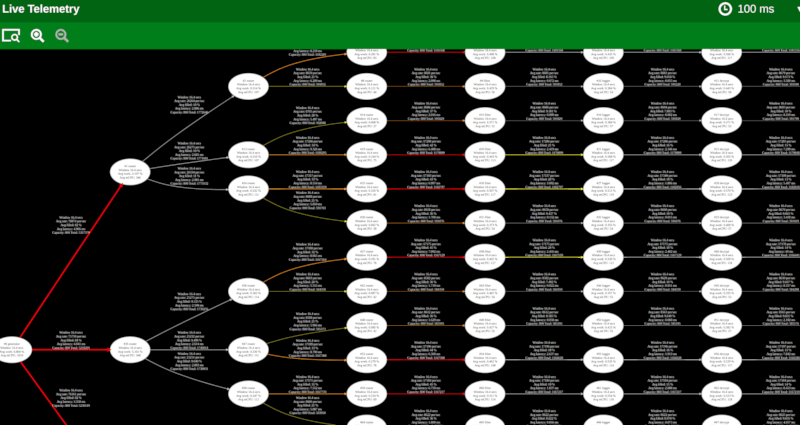6 releases
Uses new Rust 2024
| 0.1.3 | Apr 2, 2025 |
|---|---|
| 0.1.2 | Mar 3, 2025 |
| 0.1.1 | Feb 4, 2025 |
| 0.1.0 | Dec 2, 2024 |
| 0.0.11 |
|
#408 in Asynchronous
1MB
17K
SLoC
Steady State: The Foundation of Resilient Rust Services
Welcome to the Steady State Core, the backbone of the Steady State framework designed to empower developers to build resilient, high-performance services with ease.
Overview
The Steady State Core focuses on delivering essential features that ensure safety, reliability, and performance:
-
Safety and Concurrency: Leverage Rust's memory safety guarantees with actor-based supervised threading for secure and manageable concurrency.
-
High Throughput: Handle high message volumes efficiently with support for batch processing in actors.
-
Rapid Prototyping: Use Graphviz DOT files to model your actor graph, then generate Rust code to focus on your business logic.
-
Visibility and Observability: Built-in telemetry provides real-time insights, enabling you to identify and resolve bottlenecks swiftly.
 An animated GIF demonstrating real-time telemetry visualization in action.
An animated GIF demonstrating real-time telemetry visualization in action. A snapshot of a more complex example.
A snapshot of a more complex example.
Key Features
Built-in Prometheus Integration
- Metrics Collection: Automatically gather performance metrics without additional setup.
- Customizable Metrics: Extend and customize metrics to suit your application's needs.
Comprehensive Testing Framework
- Actor Unit Testing: Write tests for individual actors to ensure they function correctly in isolation.
- Graph Testing: Validate the behavior of the entire actor graph under various conditions.
- Mocking Support: Use mock actors to simulate components and external systems for thorough testing.
Flexible Actor Management
- Async Made Easy: Simplify asynchronous operations with built-in support.
- Thread Configuration: Assign actors to single threads or have actors share threads for greater scale.
Clean Shutdown Logic
- Signal Handling: Respond to system signals to initiate a clean shutdown sequence.
- Ordered Teardown: Ensure actors shut down in a controlled manner to maintain system integrity.
Getting Started
1. Define Your Actor Graph
- Write a Graphviz DOT file with annotations to model your actor system.
- Use clear labels to specify actor properties and relationships.
2. Generate Your Project
- Utilize the cargo-steady-state tool to generate your Rust service project from the DOT file.
- Focus on implementing your business logic rather than boilerplate code.
3. Implement and Test
- Implement your actors' behavior within the generated framework.
- Write unit tests for actors and integration tests for the actor graph.
- Leverage the built-in testing framework for robust validation.
Roadmap
- Enhanced Test Coverage: Increase code coverage to ensure robustness.
- Video Tutorials: Produce educational content to help developers adopt Steady State easily.
- Distributed Actor Support: Enable actors to communicate across network boundaries.
- Performance Optimizations: Continuously improve processing efficiency.
- Expanded Actor Library: Provide more pre-built actors for common patterns.
Contributing
We welcome contributions from the community. Whether it's bug reports, feature requests, or pull requests, your input is invaluable.
License
Steady State Core is open-source under the MIT License. You are free to use, modify, and distribute it under the terms of the license.
Sponsor Steady State on GitHub Today
By sponsoring Steady State, you're not just supporting a project—you're investing in the future of resilient, high-performance service development in Rust. Together, we can build solutions that keep businesses moving forward.
Feel free to reach out if you have any questions or need further assistance. Thank you for considering supporting Steady State!
Dependencies
~18–33MB
~542K SLoC